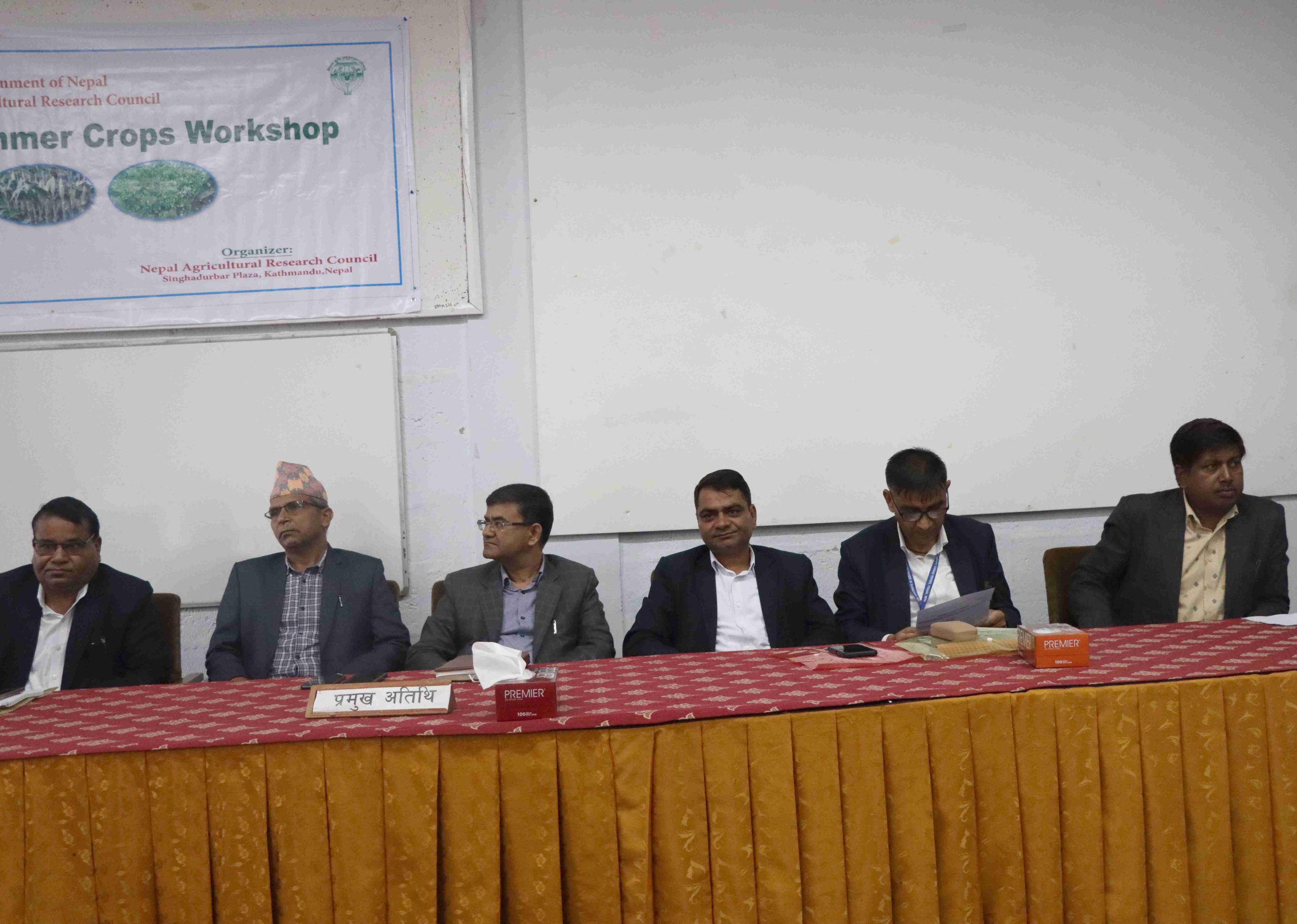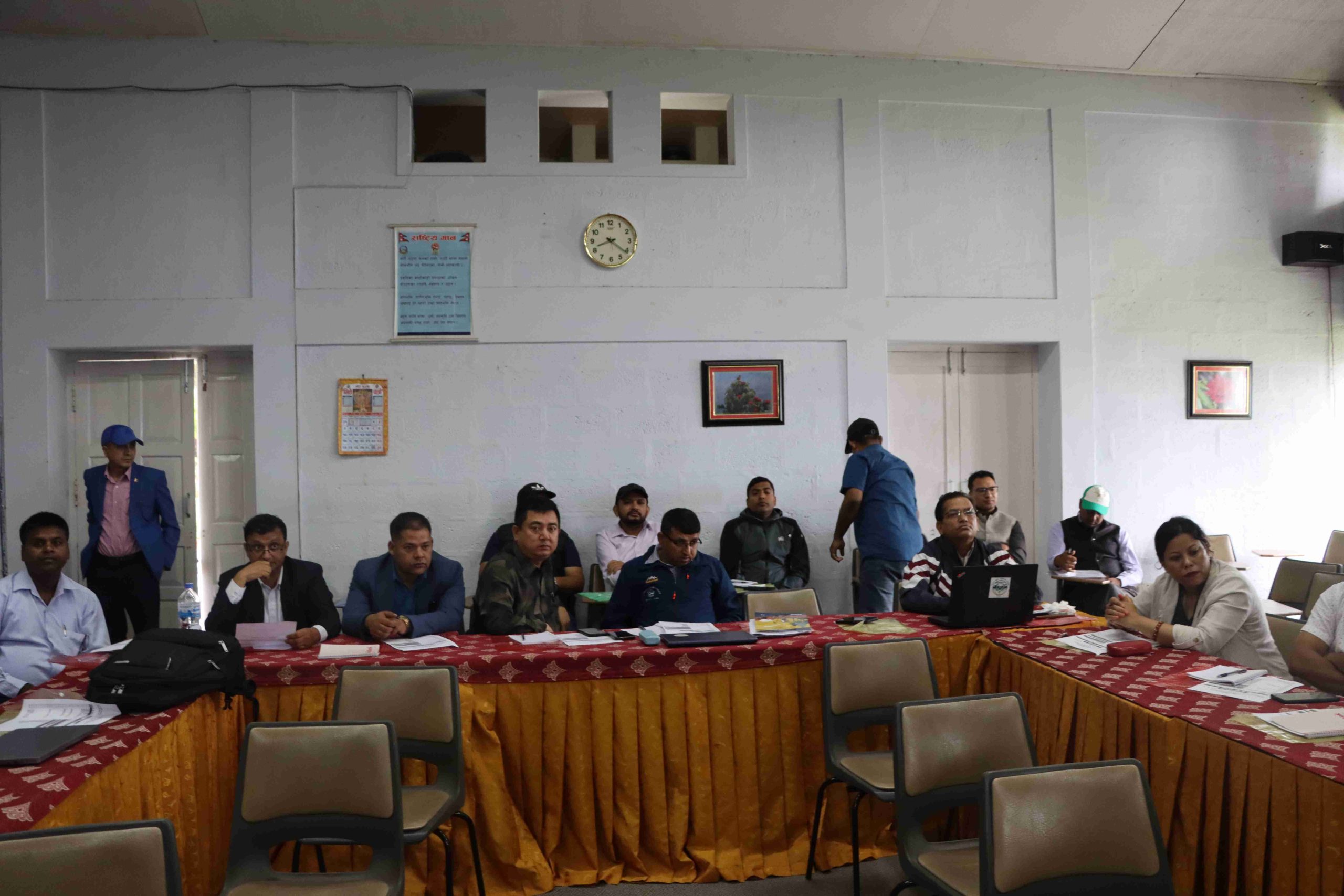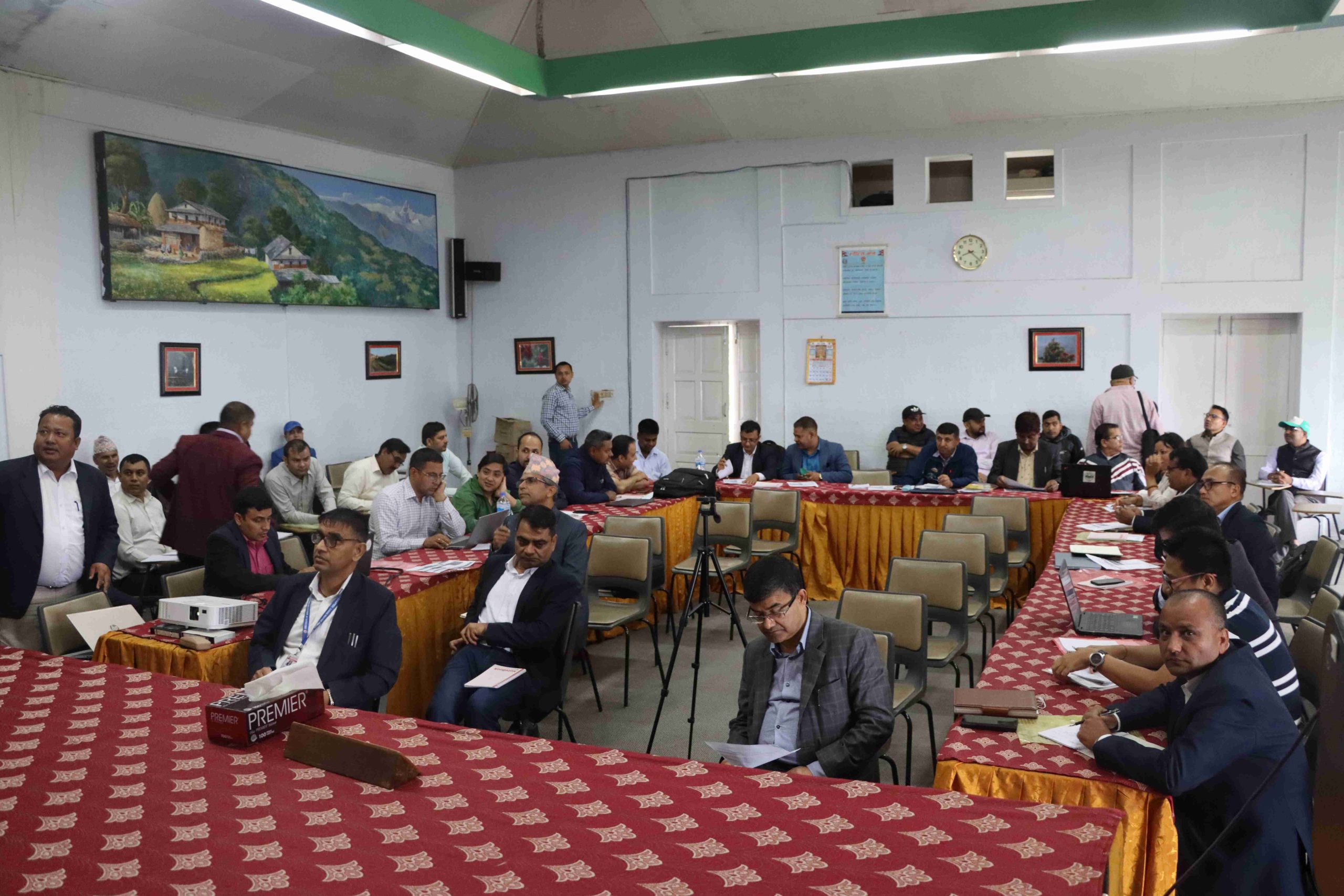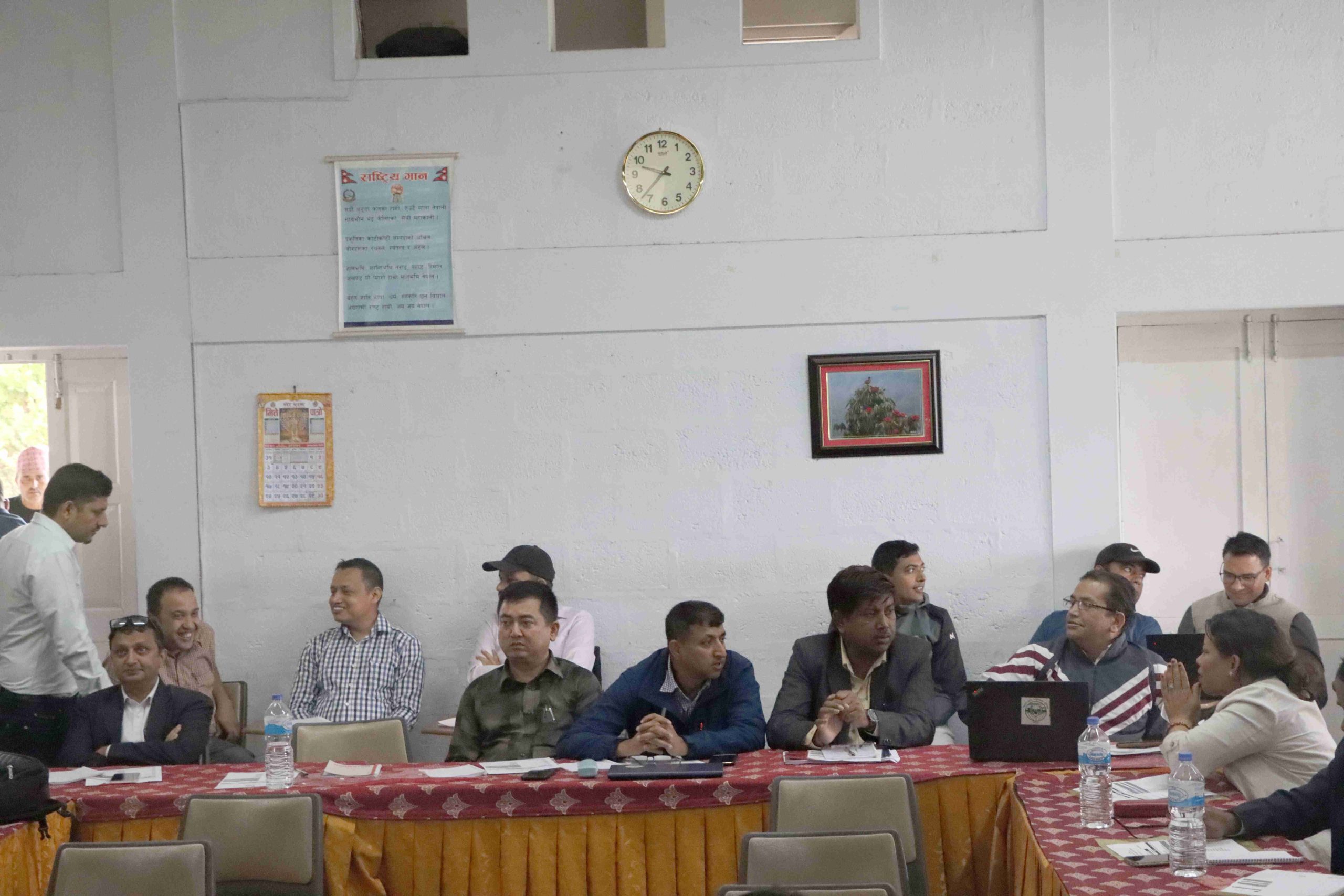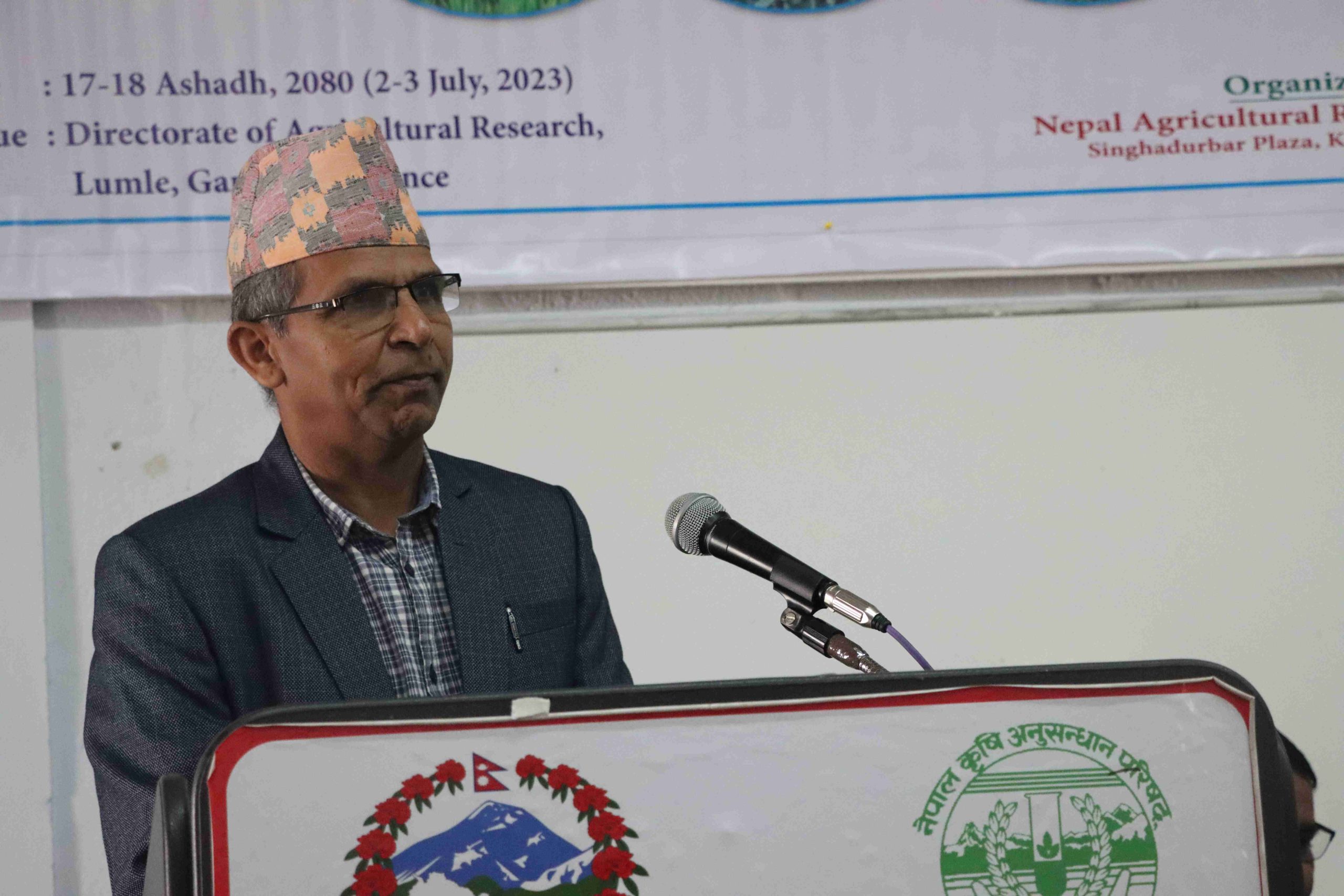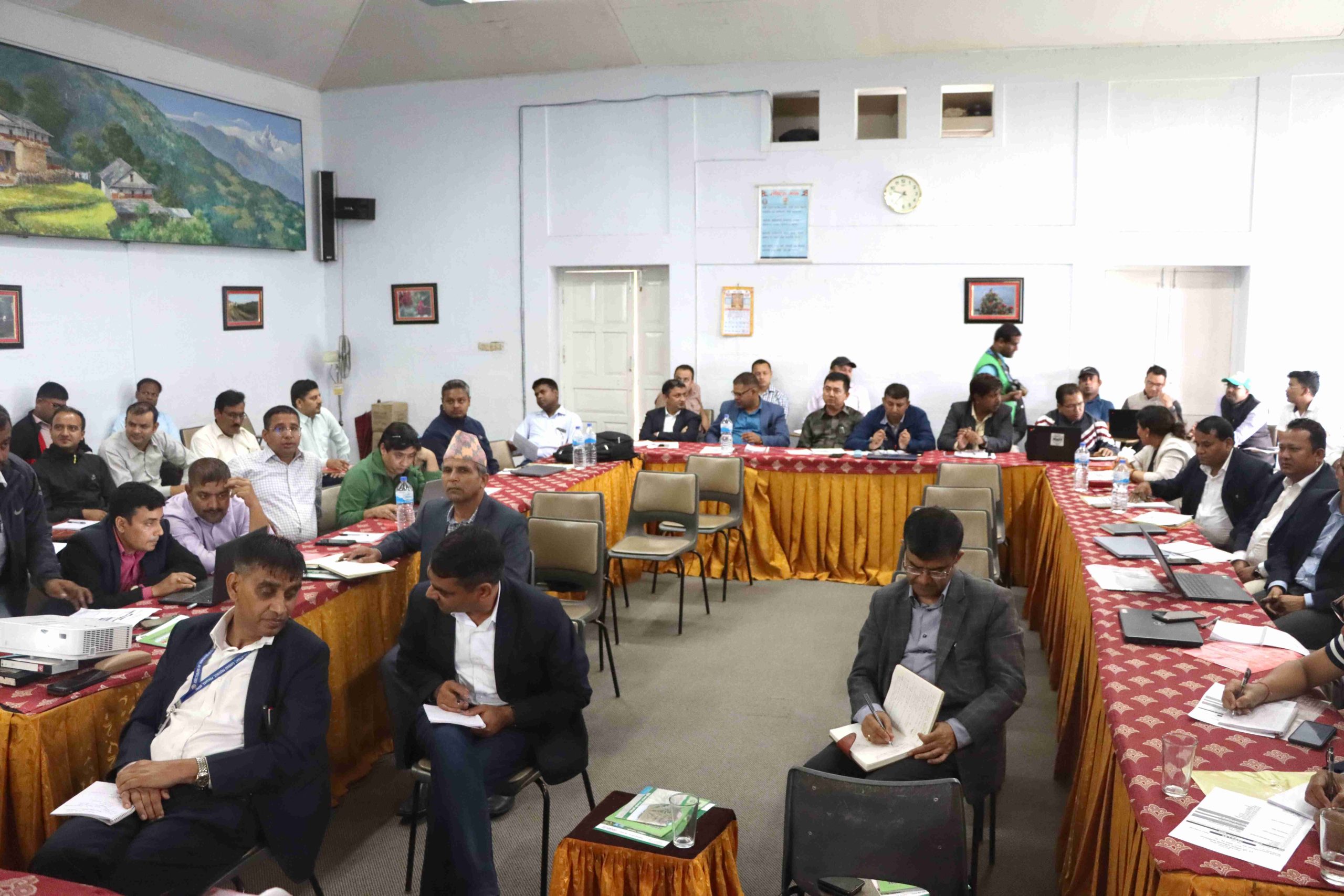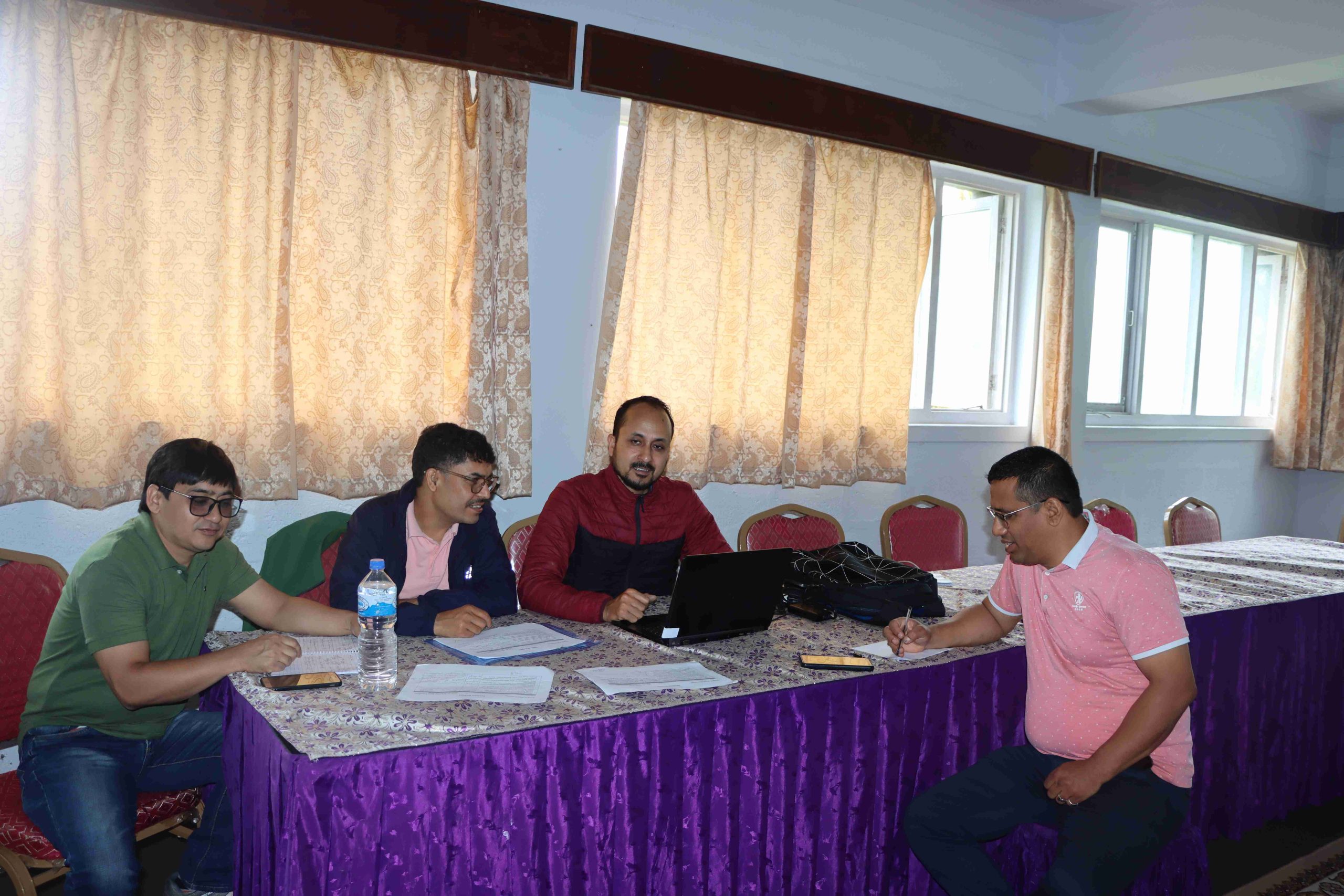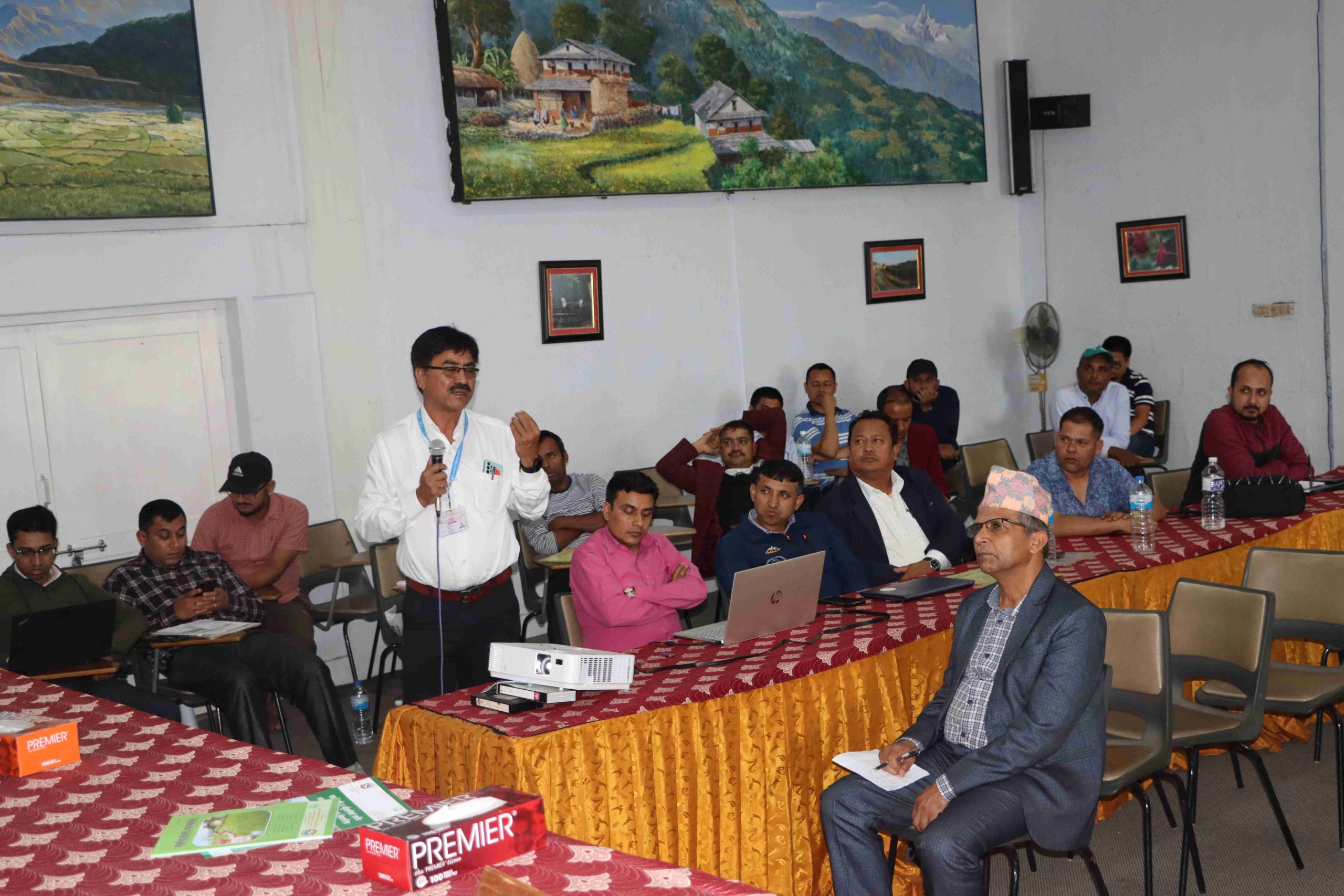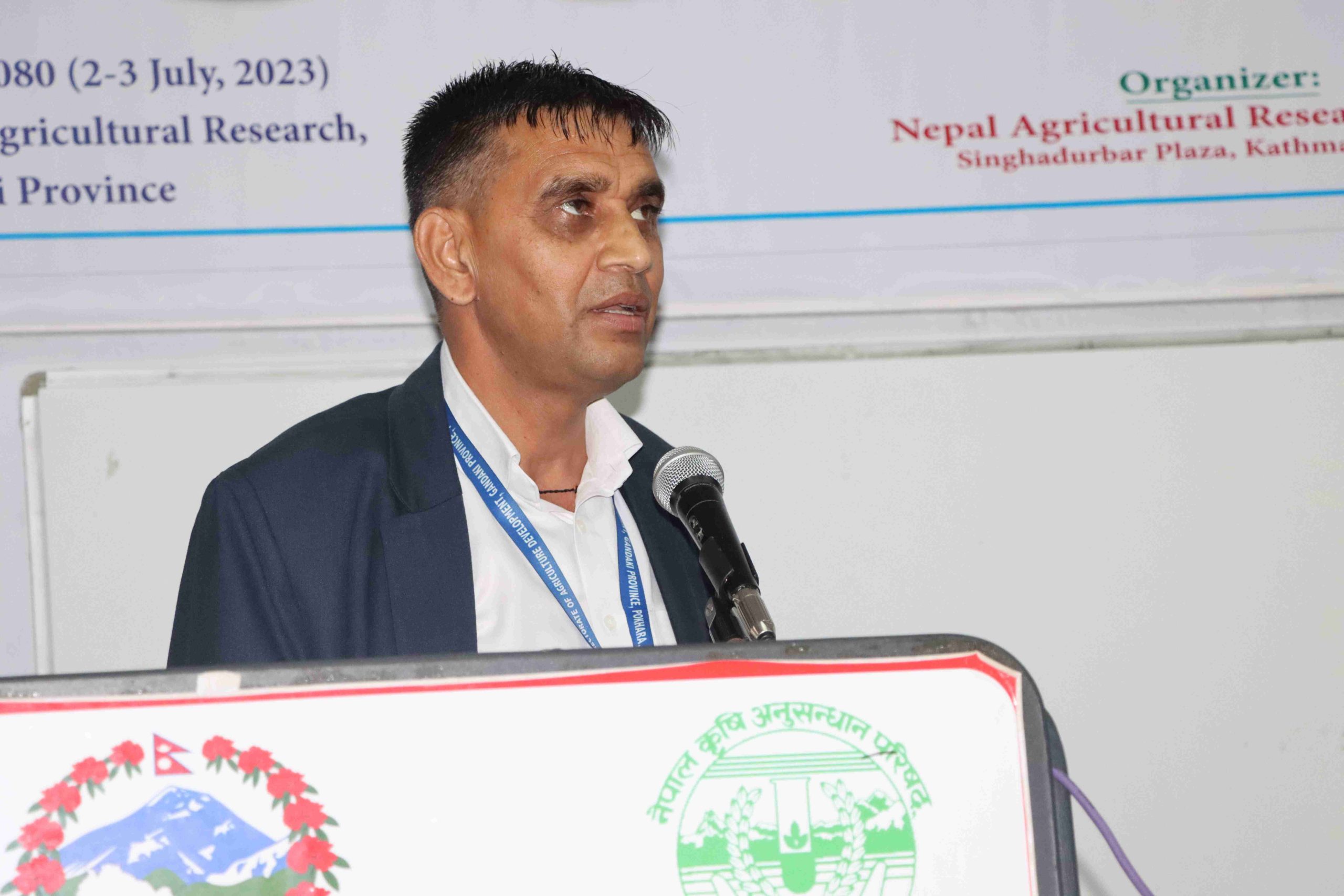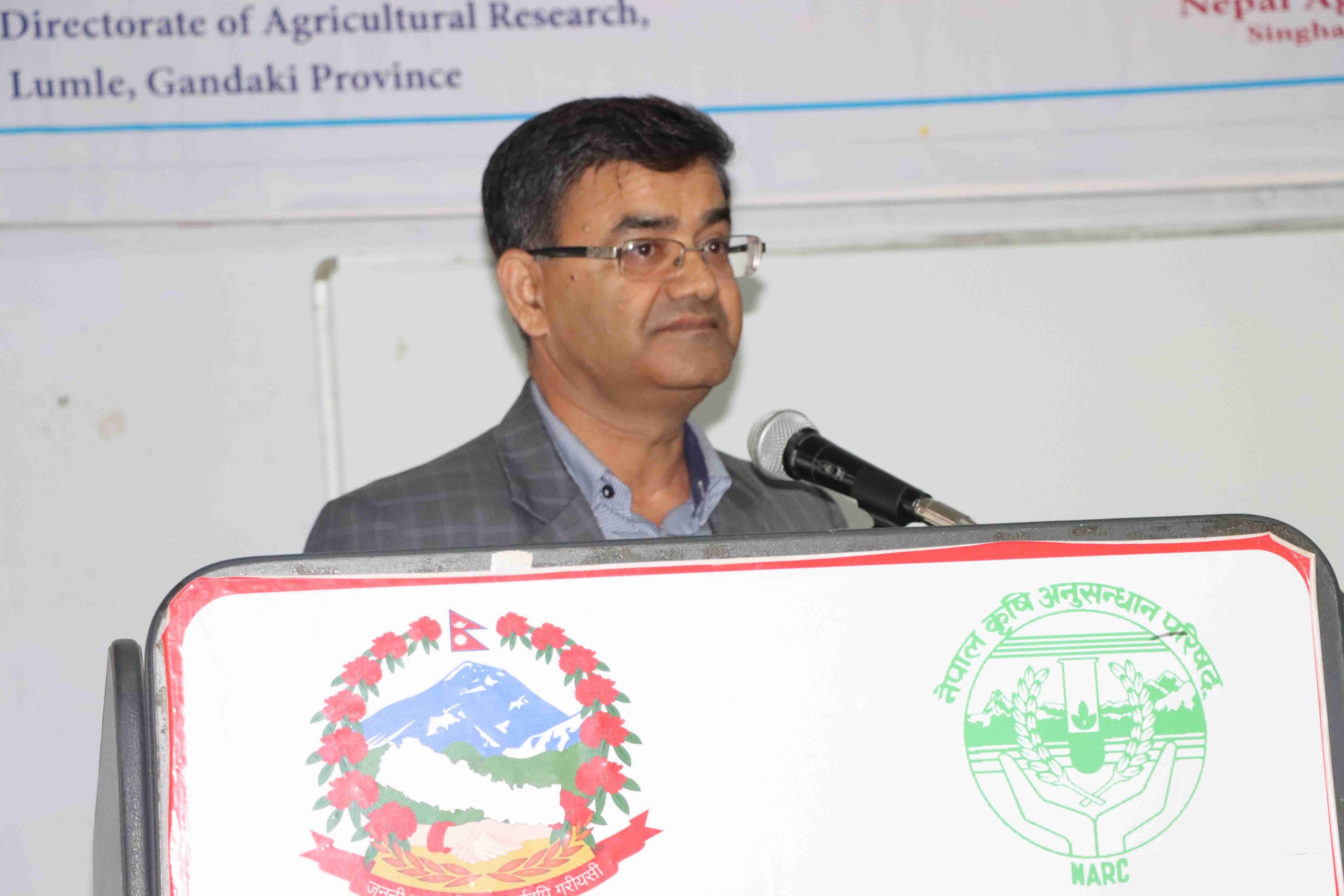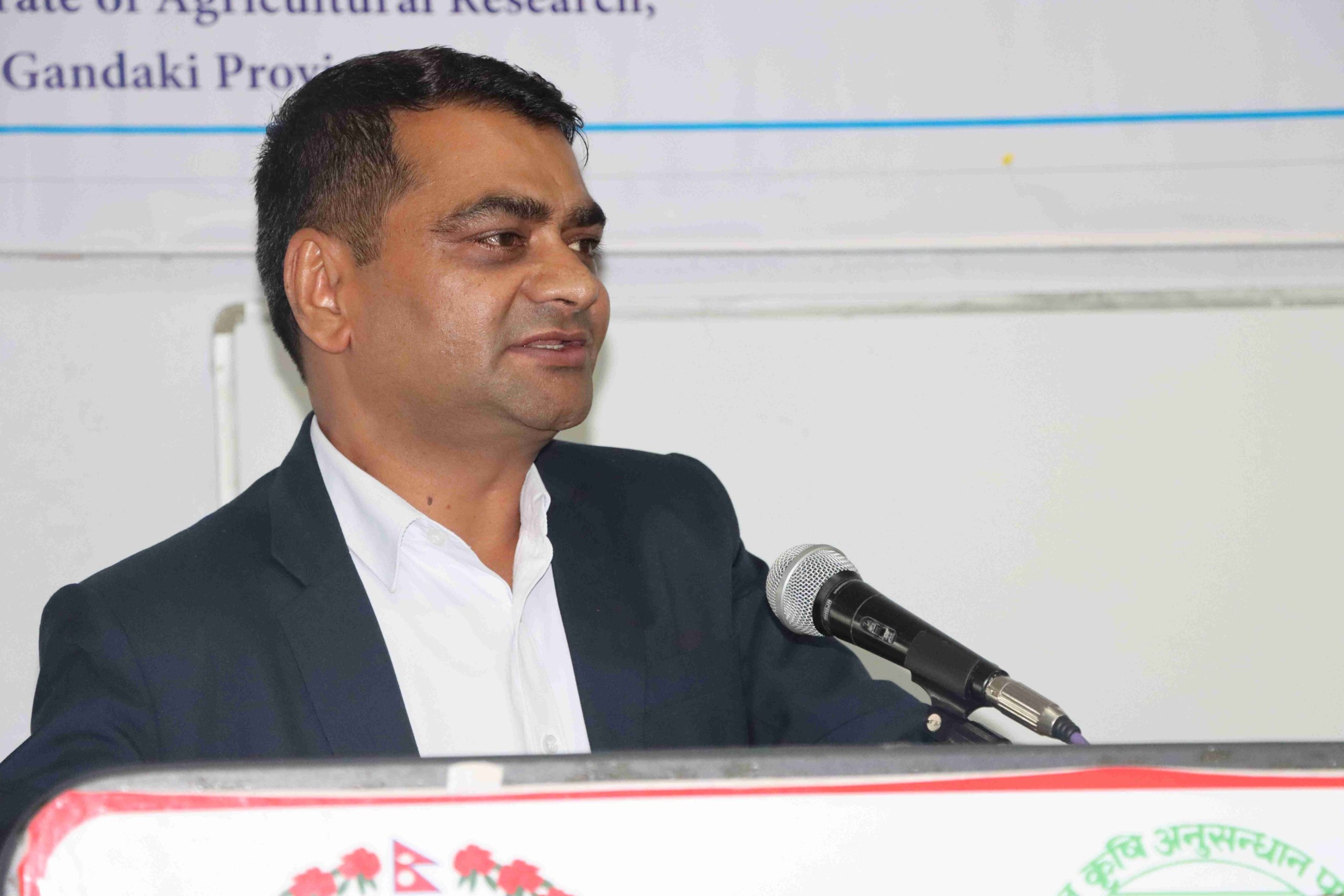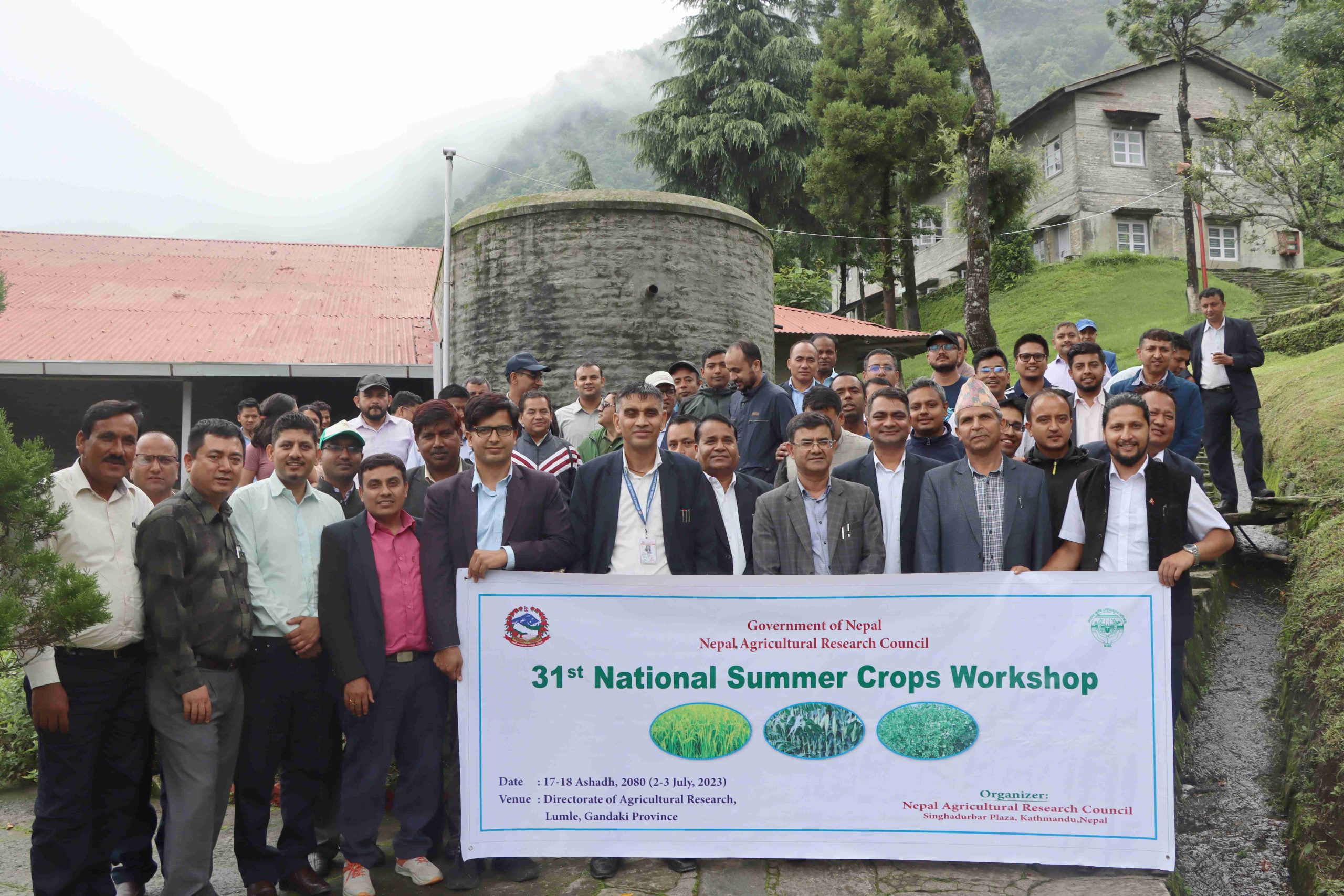The 31st National Summer Crops Workshop, organized by the Crops and Horticulture Research Directorate of the Nepal Agricultural Research Council (NARC), was held at the Directorate of Agriculture Research (DOAR), Gandaki Province, Lumle on July 2-3, 2023. Despite the road blockage that hindered some participants from attending the program at Lumle, a contingency program was promptly organized at National Maize Research Program (NMRP) Rampur to accommodate them. The workshop included various activities such as paper and poster presentations, group work sessions, and opening and closing ceremonies. This report provides a comprehensive overview of the workshop’s proceedings and the key recommendations put forth by the participants.
The workshop’s opening session was presided over by Dr. Dhruba Raj Bhattarai, the Executive Director of NARC, with Mr. Sahadev Prasad Humagai, the Secretary of the Ministry of Agriculture and Land Management, Gandaki Province, as the esteemed chief guest. The opening session featured coordinators’ and disciplinary reports presented at both Lumle and Rampur.
Parallel paper and poster presentation sessions were conducted at both locations, with a total of 111 papers presented, including research papers, commodity coordinators’ reports, and disciplinary reports. These sessions provided a platform for researchers to present their findings and engage in valuable discussions with their peers and experts in the field.
The workshop also included group work activities, where participants were divided into four groups based on their interests and expertise. The groups were tasked with consolidating major findings, identifying technologies for farmers, recognizing varieties with potential for registration/release, and suggesting research priorities in their respective disciplines. The outcomes of the group work sessions are discussed in detail in the report.
Recommendations:
The group work sessions and technical presentations resulted in several key recommendations across various disciplines. In the field of plant breeding and genetics, recommendations included incorporating molecular and modern technologies, providing incentives and recognition for researchers, advocating for increased investments in research, and enforcing breeder’s rights. Capacity building initiatives and the development of a qualified workforce were also emphasized.
Technological recommendations were provided in the areas of agronomy, soil management, and plant protection. These recommendations encompassed the use of specific herbicides for weed control in rice, recommended sowing dates for different rice varieties, efficient maize storage methods, optimal fertilizer combinations for various crops, and pest management strategies.
The report also highlighted major outputs and recommendations from food research and socioeconomic research conducted during the workshop. These findings included variations in quality attributes of different rice varieties, optimal germination periods for improved biochemical properties, adoption patterns of maize varieties, soybean cultivation opportunities, and the need for economic analysis of crop management technologies.
The 31st National Summer Crops Workshop served as a successful platform for knowledge sharing and collaboration among researchers in the field of agriculture. Despite the challenges faced, the workshop generated valuable recommendations and insights in various disciplines. The recommendations have the potential to enhance crop productivity, improve farming practices, and contribute to the sustainable development of Nepal’s agricultural sector. The organizers expressed their gratitude to all participants, presenters, and dignitaries for their contributions to the workshop’s success. The insights gained from this event will undoubtedly contribute to the advancement of summer crop research and the development of sustainable agricultural practices in Nepal.
Full Report_31st SWC_2-3 July 2023_Lumle
